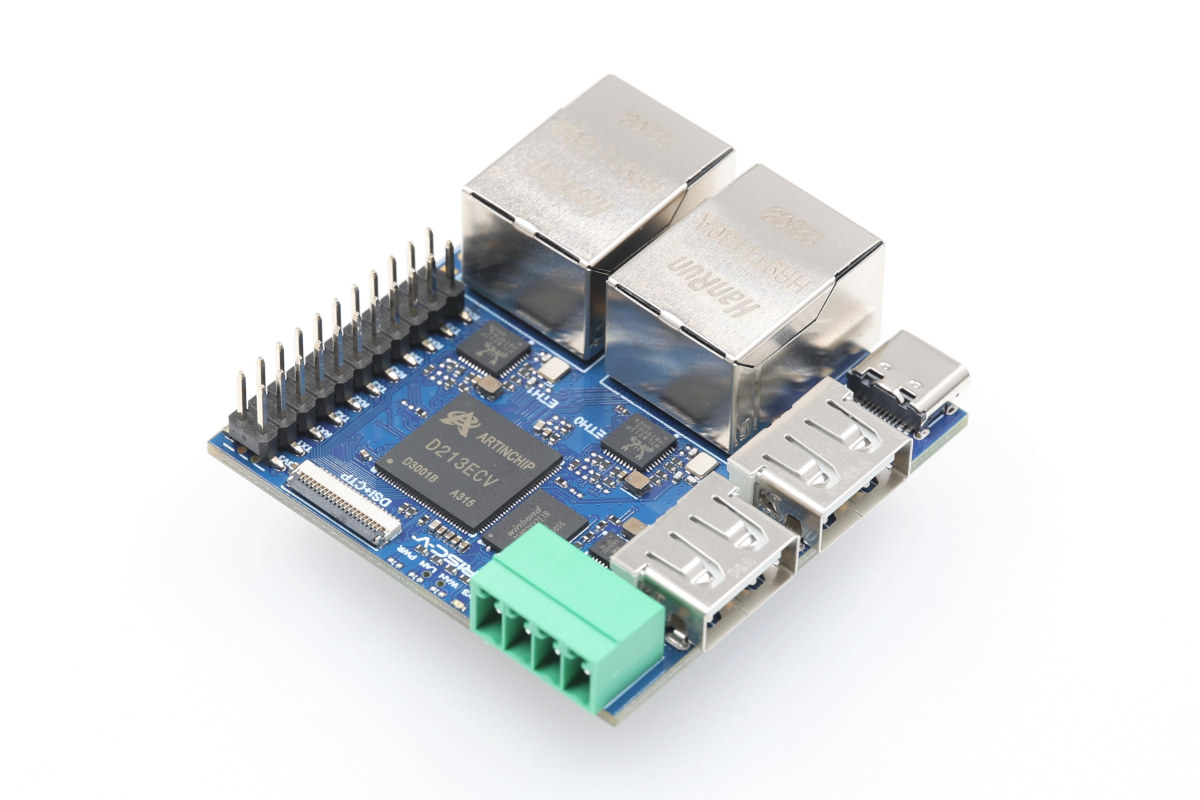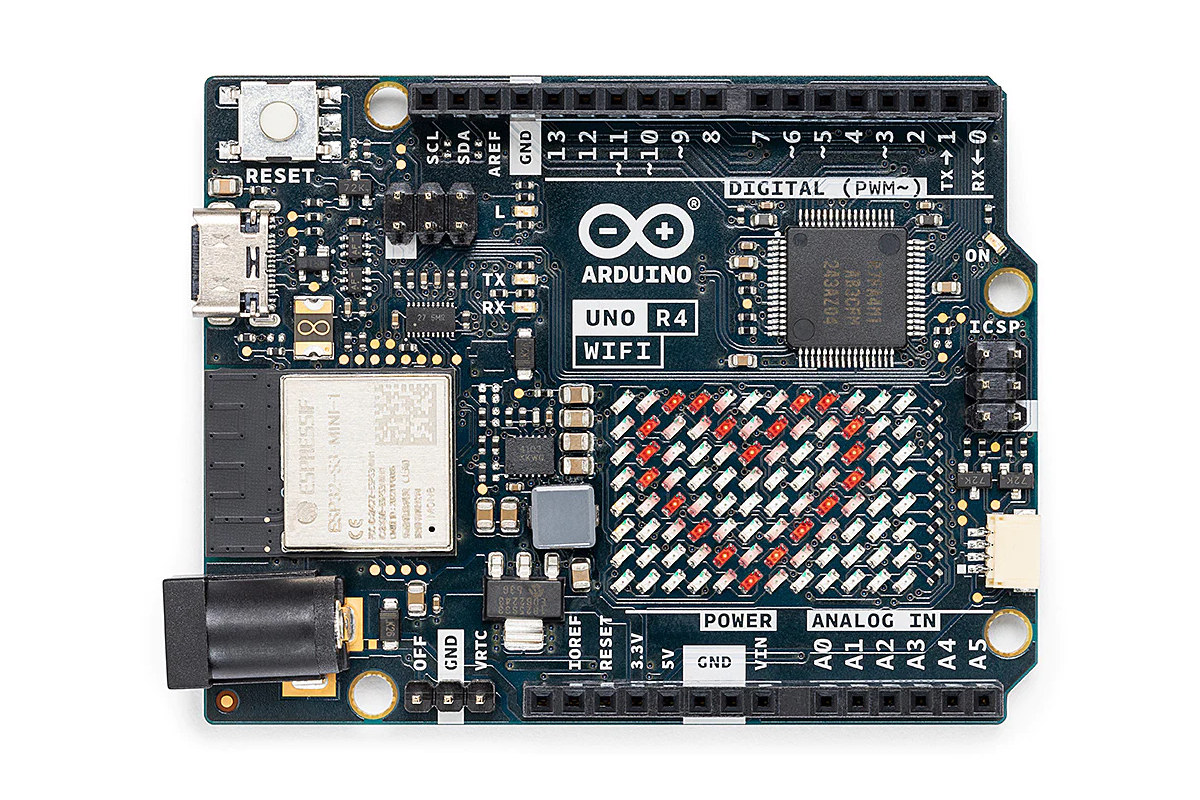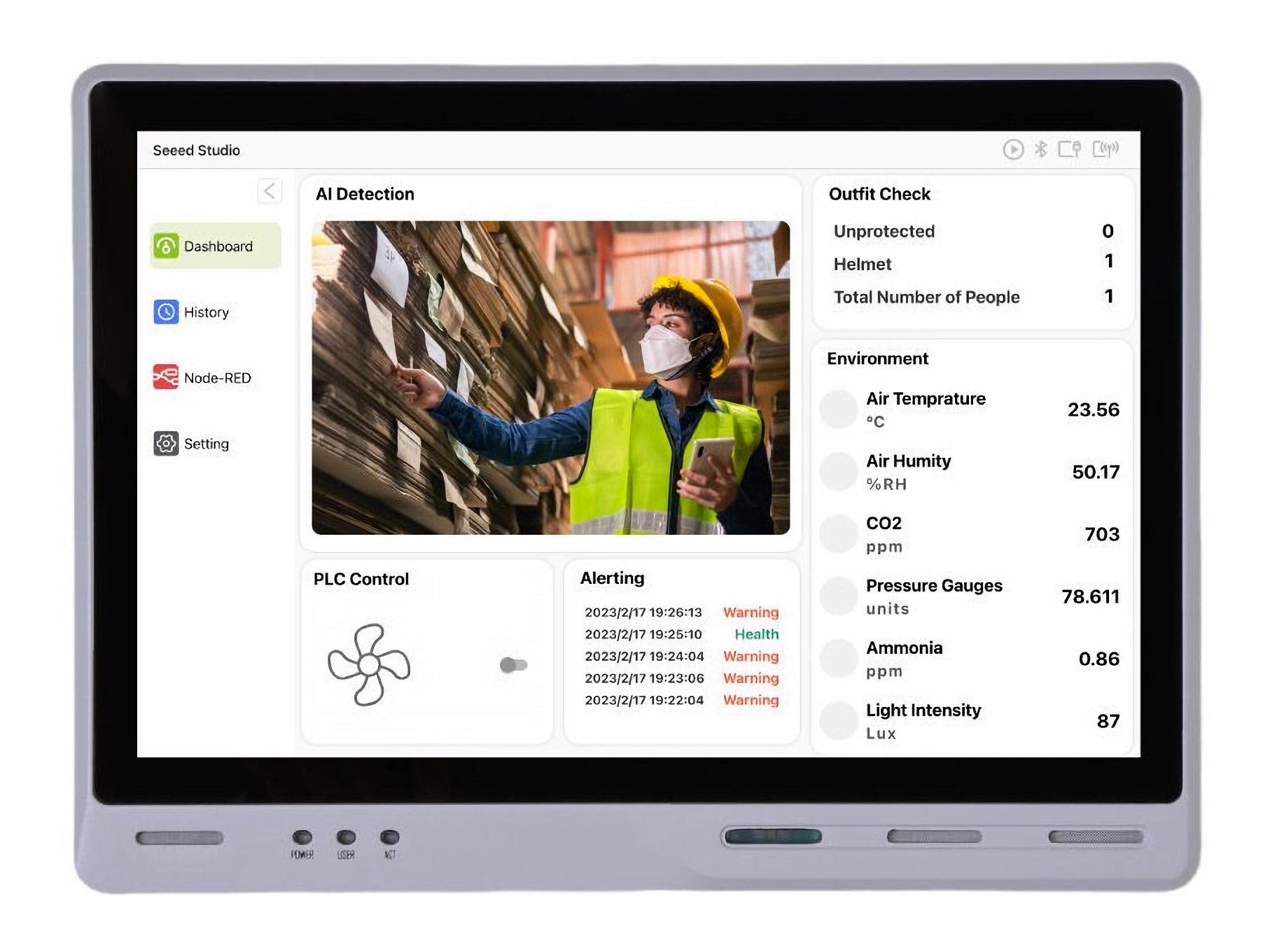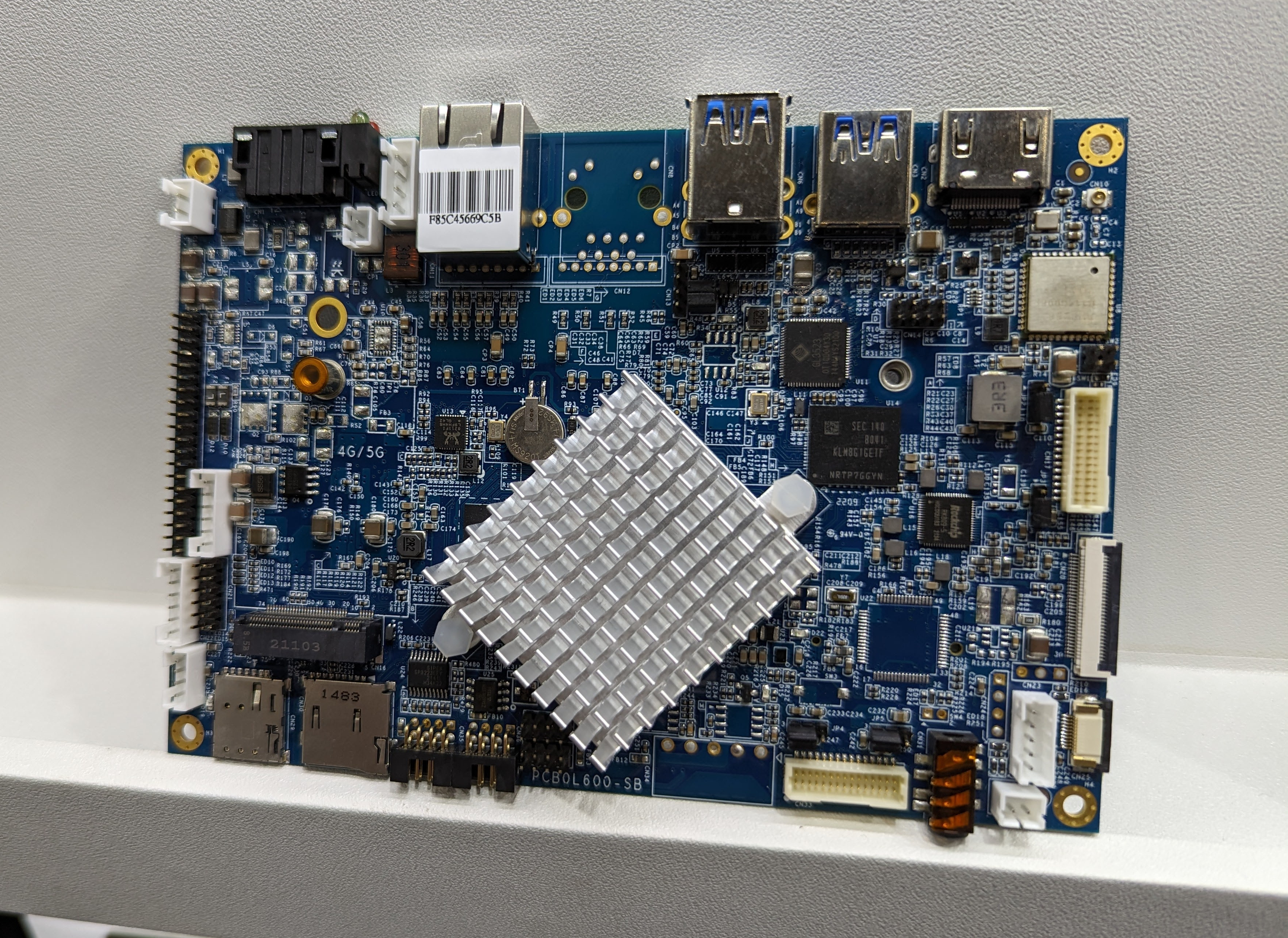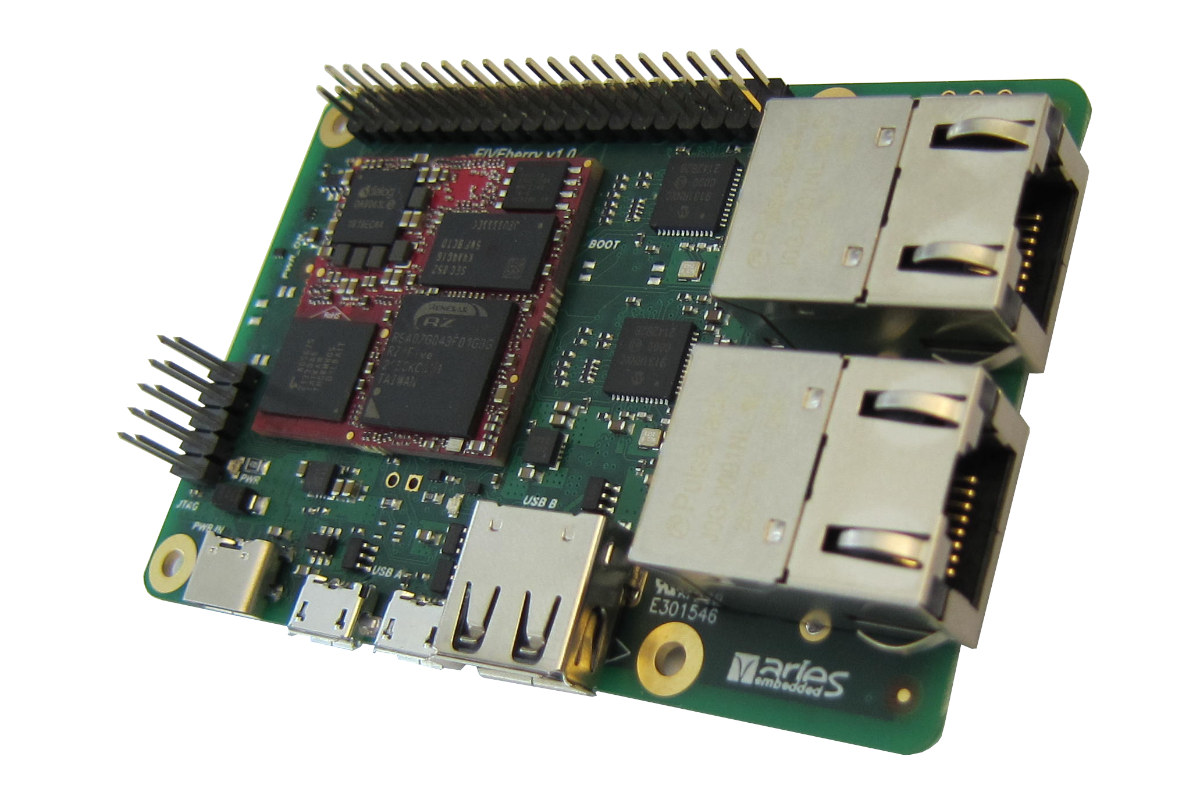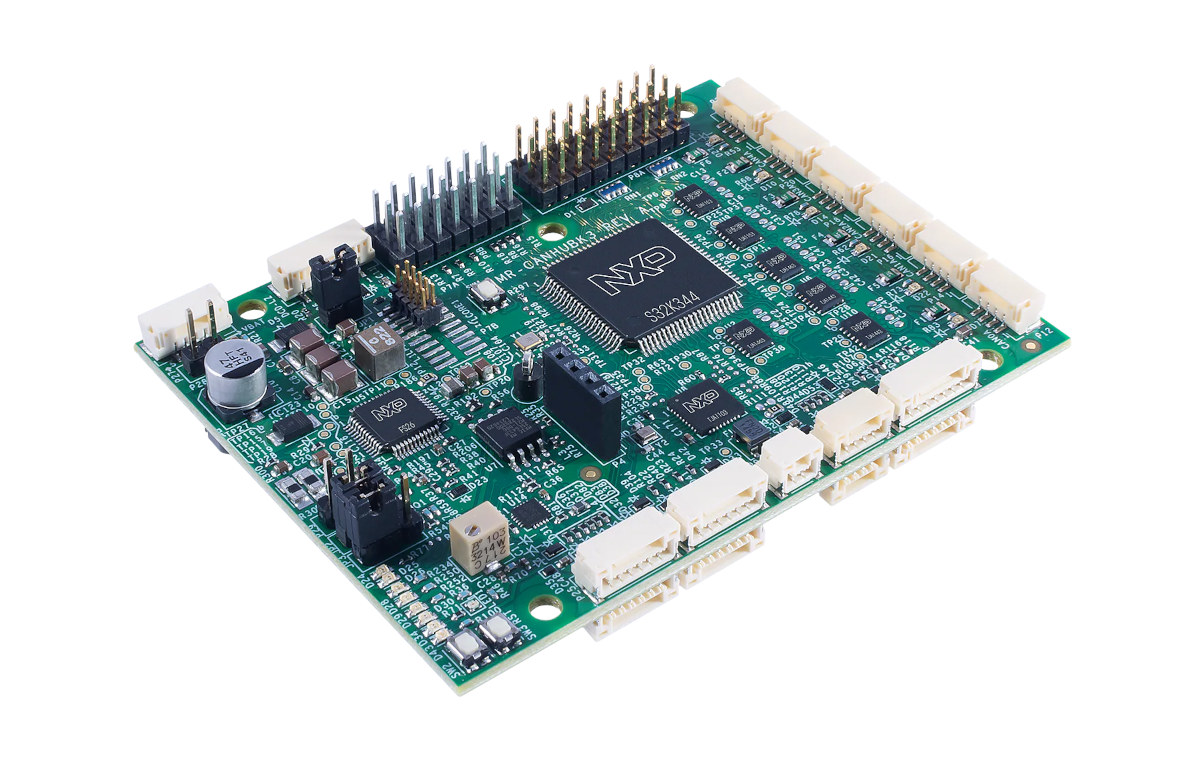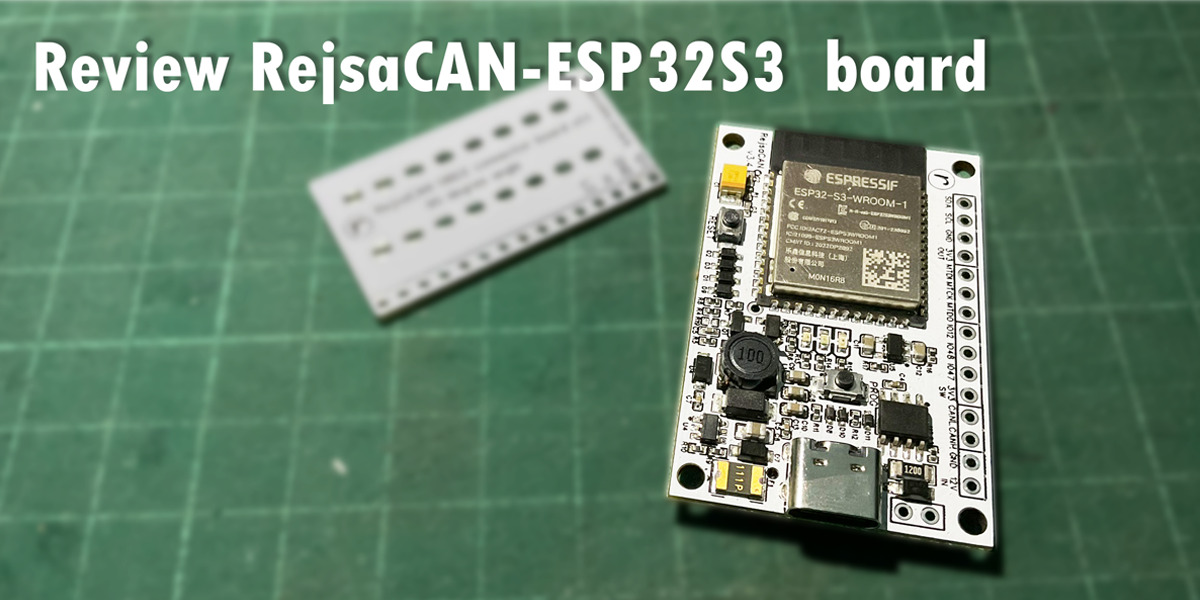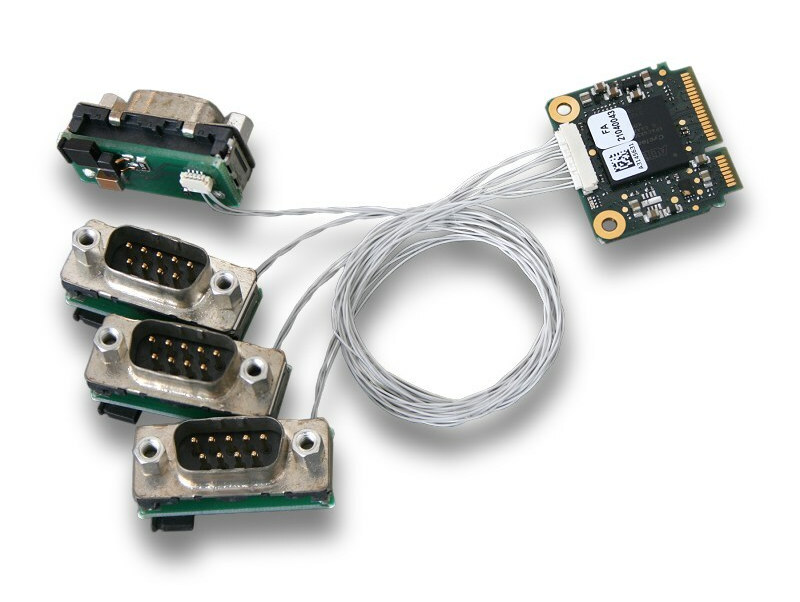MangoPi is working on the first RISC-V router I’ve seen. The MPi-GW1 is based on the ArtInChip D213ECV 64-bit RISC-V processor with 128 MB DDR3 on-chip, 256MB SPI NAND flash, two Gigabit Ethernet ports, two USB 2.0 ports, MIPI DSI+touch connector, support for CAN Bus and RS485, and expansion through a 22-pin GPIO header. Routers used to be mostly based on MIPS processors, then Arm processors took over, and maybe RISC-V is next, as MangoPi has just unveiled photos of the first RISC-V router on Twitter, and leaked some tidbits of information over the last two weeks or so on the social media platform. MangoPi MPi-GW1 RISC-V router specifications (preliminary): SoC – ArtInChip D213ECV 64-bit RISC-V (RV64IMAFDC) processor System Memory – 128MB 16-bit DDR3 @ 672 MHz (SiP) Storage – 256MB (2Gbit) SPI NAND flash (Winbond 25N02KVZEIR), microSD card slot (bottom side of the board) Networking – 2x Gigabit Ethernet […]
Arduino UNO R4 Minima and WiFi boards launched for $20 and $27.50
Arduino UNO R4 Minima and WiFi boards powered by a Renesas RA4M1 32-bit Arm Cortex-M4F microcontroller and equipped with an optional ESP32-S3 WiFI & BLE module are now available for respectively $20 (18 Euros) and $27.50 (25 Euros) on the Arduino store. The Arduino UNO R4 Renesas RA4M1 board was initially unveiled during Arduino Day with most details, but not everything as the company had hidden one part of the board which we now know is for a 12×8 LED matrix and a Qwiic connector for expansion present on the UNO R4 WiFi only. Arduino UNO R4 specifications: Microcontroller – Renesas RA4M1 Arm Cortex-M4F MCU @ 48 MHz with 32KB SRAM, 256KB flash Wireless (Arduino UNO R4 WiFi only) – ESP32-S3-MINI-1 module based on ESP32-S3 dual-core Xtensa LX7 microcontroller with 512KB SRAM, 384KB ROM, WiFi 4 and Bluetooth 5.0 connectivity, PCB antenna Display (UNO R4 WiFi only) – 12×8 LED […]
reTerminal DM – A Raspberry Pi CM4-powered 10.1-inch HMI controller
Seeed Studio’s reTerminal DM is an upgrade to the Raspberry Pi CM4-powered reTerminal with a larger 10.1-inch touchscreen display and a greater range of features and interfaces for various industrial applications. Described as a “Panel PC, HMI, PLC, IIoT Gateway all-in-one device”, the new reTerminal DM notably supports 12V-24V variable DC input and optionally PoE power input, its front panel is rated IP65 for protection against liquids and dust, a range of wired and wireless connectivity options are offered, and it also includes some serial and digital input and output interfaces. reTerminal DM specifications: SoM – Raspberry Pi Compute Module 4 with Broadcom BCM2711 quad-core Cortex-A72 processor @ 1.5 GHz, up to 8GB RAM, up to 32GB flash Storage – Optional M.2 NVMe SSD via M.2 2280 Key-M slot Display – 10.1-inch display with 1280 x 800 resolution, 10-point capacitive touchscreen 400-nit brightness, 170° H/V viewing angle Video Output – […]
ECS RK3568-IS 3.5-inch SBC with Rockchip RK3568 SoC showcased at COMPUTEX 2023
ECS is better known for its LIVA mini PCs and x86 motherboards, but ECSIPC unveiled a 3.5-inch SBC powered by Rockchip RK3568 Arm SoC at Embedded World 2023. However, when I asked for photos or detailed specifications at the time, I was told by a company representative no further details were available. But we now have more information as the company is showcasing the RK3568-IS 3.5-inch SBC at COMPUTEX 2023, and I received some photos from their booth. ECS RK3568-IS specifications: SoC – Rockchip RK3568 quad-core Arm Cortex-A55 @ up to 2.0 GHz with ARM Mali-G52 2EE GPU with support for OpenGL ES 1.1/2.0/3.2. OpenCL 2.0. Vulkan 1.1, 0.8 TOPS NPU System Memory – 2GB, 4GB, or 8GB DDR3 or LPDDR4X Storage 8GB or 32GB eMMC flash M.2 socket for 2280 NVMe SSD MicroSD card slot Display HDMI 2.0 output eDP 1.3 LVDS or MIPI DSI interface I2C capacitive touch […]
ARIES FIVEberry – A Community RISC-V SBC powered by Renesas RZ/Five processor
ARIES Embedded has unveiled the FIVEberry 64-bit RISC-V community board for fast prototyping fitted with an OSM-compatible MSRZFive system-in-package (SiP) powered by a 1GHz Renesas RZ/Five microprocessor. The board is equipped with a module with 512 DDR4, a 128MBit SPI NOR flash, a microSD card on the bottom of the board, two Gigabit Ethernet ports, two USB 2.0 ports, a micro USB port for serial console, and a JTAG header for further debugging, as well as a 40-pin GPIO header for expansion. FIVEberry specifications: SoM – ARIES Embedded MSRZFive-A0A system-on-module SoC – Renesas RZ/Five R9A07G043F01GBG single-core RISC-V AX45MP processor @ to 1.0 GHz System Memory – 512MB DDR4 RAM Storage – 128Mbit SPI NOR flash 332 contacts as per OSM Size-S specifications Storage – MicroSD card slot Networking – 2x Gigabit Ethernet ports USB – 1x USB 2.0 host port, 1x micro USB 2.0 OTG port Expansion – 40-pin GPIO […]
NXP S32K344 evaluation board for mobile robots offers one 100BaseT1, six CAN-FD interfaces
MR-CANHUBK344 is an evaluation board based on NXP S32K344 Arm Cortex-M7 automotive general-purpose microcontroller designed for mobile robotics applications such as autonomous mobile robots (AMR) and automated guided vehicles (AGV) with a 100baseT1 Ethernet interface and six CAN-FD ports. The six CAN bus connectors come in three pairs of CAN-FD, CAN-SIC (signal improvement), and CAN-SCP (secure) interfaces using NXP chips. The board can notably be used for tunneling CAN over Ethernet using IEEE1722, plus the board is equipped with an SE050 Secure element with NFC for authentication, and various general-purpose peripheral interfaces via DroneCode standard JST-GH connectors. MR-CANHUBK344 evaluation board specifications: MCU – NXP S32K344 lockstep Cortex-M7 microcontroller @ up to 160 MHz with 4MB flash, 512KB SRAM, 6x CAN bus interfaces, up to 218 I/Os, AEC-Q100 compliant Ethernet – ASIL-B compliant 100BASE-T1 Ethernet PHY (TJA1103) 6x CAN-FD interfaces with 2x CAN Bus with flexible data rate through TJA144x automotive […]
Programming RejsaCAN-ESP32-S3 CAN bus board with Arduino for car “hacking”
The RejsaCAN-ESP32-S3 is an ESP32-S3 board suitable for developers who want to build a car-related project. It can control or read the data from the OBD-II connector in your car using 2.4 GHz Wi-Fi or/and Bluetooth 5 (LE), or for IoT projects, connecting a sensor to the board and sending data to an app, the cloud, or log the data to a microSD Card. The board is designed to be small enough to be installed in a car. The board is an evolution of the previous ESP32-based RejsaCAN-ESP32 with the developer – Magnus Thomé – switching to the ESP32-S3 chip as previously announced. The main specifications are similar, but the ESP32-S3 is a newer LX7 processor with Bluetooth LE 5.0 support, and the ESP32 board had to use a USB-to-serial chip to communicate or upload the program through a PC, but the new board uses the USB interface on […]
Half-size mini PCIe card adds up to 4 CAN FD interfaces to embedded systems
esd electronics CAN-PCIeMiniHS/402 is a half-size mini PCIe card with four CAN FD Interfaces designed for embedded systems with one model adding extended temperature range support from -40C to 85°C. The company also introduced the CAN-Mini/402-4-DSUB9-150mm adapter to more easily connect the four CAN network interfaces via DSUB9 connectors. It comes with four individual small adapter boards, each equipped with a DSUB9 plug and a jumper for selectable onboard CAN termination, as well as 150 mm long wires. CAN-PCIeMiniHS/402 highlights: 4x CAN FD interfaces according to ISO 11898-2, no galvanic isolation, bit rates from 10 Kbit/s up to 8 Mbit/s Bus mastering and local data management by FPGA (Intel Cyclone IV EP4CGX) PCIe Mini interface according to Mini Card Electromechanical Spec. R1.2 Supports MSI (Message Signaled Interrupts) HW-Timestamp capable Dimensions – 30 mm x 27 mm (Half-size mini PCIe form factor) Temperature Range Standard – 0°C … +75°C Extended range: […]


